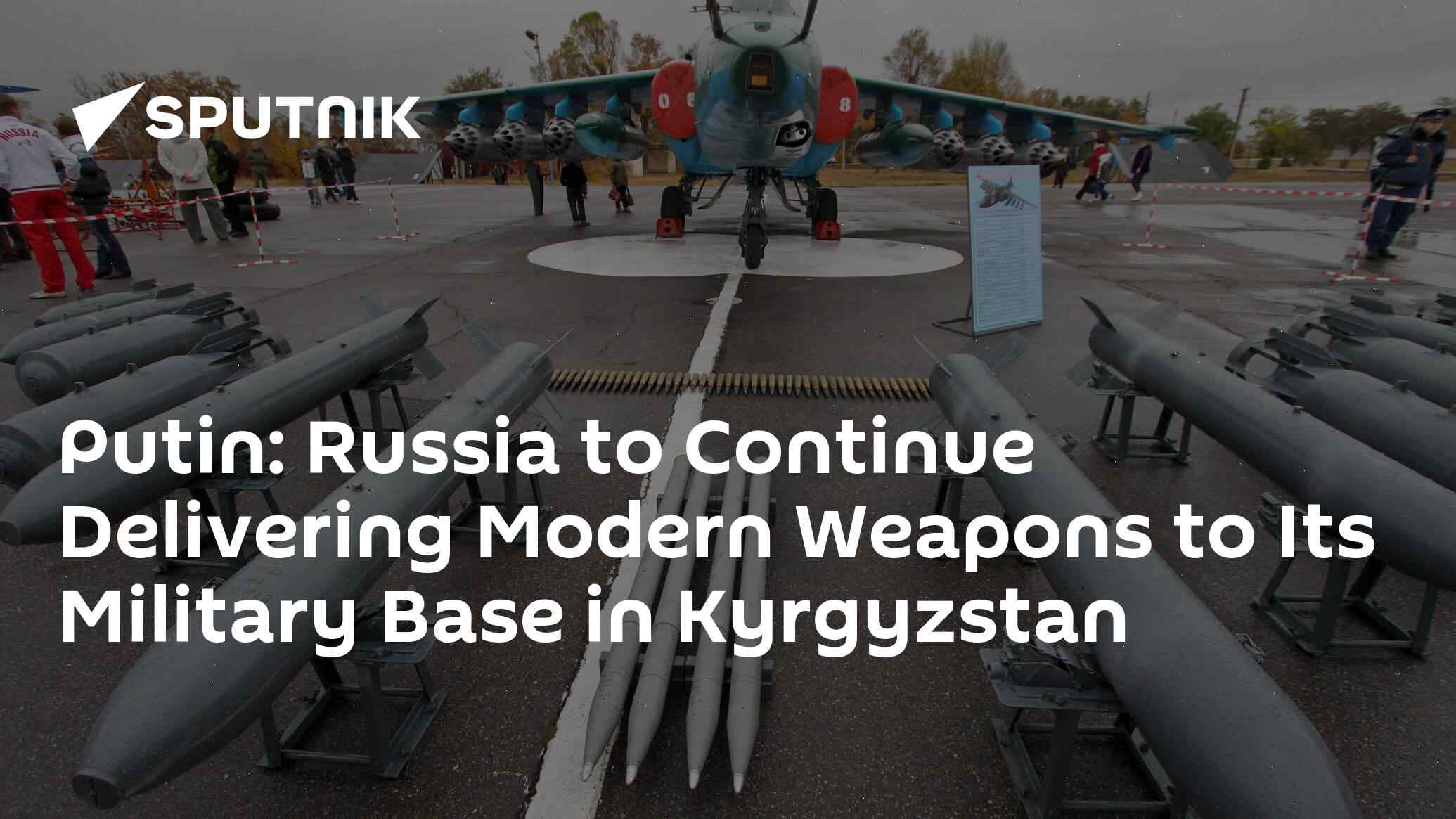Moscow, Russia – In a move likely to stir regional tensions, Russian President Vladimir Putin announced today that his country will continue delivering modern weapons to its military base in Kyrgyzstan. The Central Asian nation has hosted a Russian military presence since the collapse of the Soviet Union, but recent political developments have raised concerns among neighboring countries.
According to Putin, the weaponry delivered to the base will include state-of-the-art missile systems, fighter jets, and armored vehicles. He emphasized that the reinforcements aim to enhance the security of both Russia and Kyrgyzstan, as well as contribute to regional stability. However, experts believe that the increased militarization could lead to an arms race in the volatile region.
Kyrgyzstan shares borders with several strategically important nations, including China, Kazakhstan, Uzbekistan, and Tajikistan. Its location along the ancient Silk Road makes it a crucial transit point for trade and transportation routes. The country has been a key player in regional politics, and its alliance with Russia dates back to the Soviet era.
Russia’s decision to bolster its military presence in Kyrgyzstan comes at a time when geopolitical tensions are running high. The ongoing conflict in Ukraine, coupled with the United States’ withdrawal from Afghanistan, has created a power vacuum in the region. China’s growing influence in Central Asia has also raised concerns among regional players, making the situation increasingly complex.
International relations experts suggest that Russia’s move may be seen as a message to other nations in the region, particularly China, that Moscow intends to maintain its influence and protect its interests. Beijing has recently strengthened its economic and diplomatic ties with Bishkek, which could potentially challenge Russia’s traditional dominance in the region.
In addition, the latest development might put pressure on Washington’s relationship with Kyrgyzstan. The United States has maintained a military base in the country since 2001, primarily used for logistical support during operations in nearby Afghanistan. As the US continues to navigate its own geopolitical challenges, the longevity of its partnership with Bishkek remains uncertain.
The implications of Russia’s actions extend beyond the realm of international relations. The increased military presence in Kyrgyzstan could have significant environmental consequences, given the fragility of the region’s ecosystem. The deployment of advanced weaponry and military equipment may disrupt the natural habitats of endangered species, such as the snow leopard and the Siberian ibex. Environmental activists fear that the heightened activity near sensitive border areas could exacerbate existing issues like pollution and deforestation.
Despite these concerns, it appears that Russia’s commitment to its Kyrgyzstani military base is unwavering. During a press conference in Moscow, Kremlin spokesperson Dmitry Peskov reiterated that the reinforcements were necessary to ensure regional safety and stability. When questioned about potential talks with China regarding the issue, Peskov remained tight-lipped, fueling speculation about a possible rift between the two powers.
As the situation unfolds, attention turns to the impending meeting between Putin and Chinese President Xi Jinping. Scheduled for later this month, their summit promises to provide valuable insight into the future of Sino-Russian relations and the broader geopolitical landscape of Central Asia. With tensions simmering just beneath the surface, the stakes are high for all parties involved.
In conclusion, Russia’s decision to fortify its military base in Kyrgyzstan marks a significant turning point in regional politics. As global superpowers maneuver for influence, the fate of smaller nations hangs precariously in the balance. It remains to be seen how events will unfold, but one thing is certain – the geopolitical dynamics of Central Asia are set to undergo a dramatic transformation in the months ahead.

